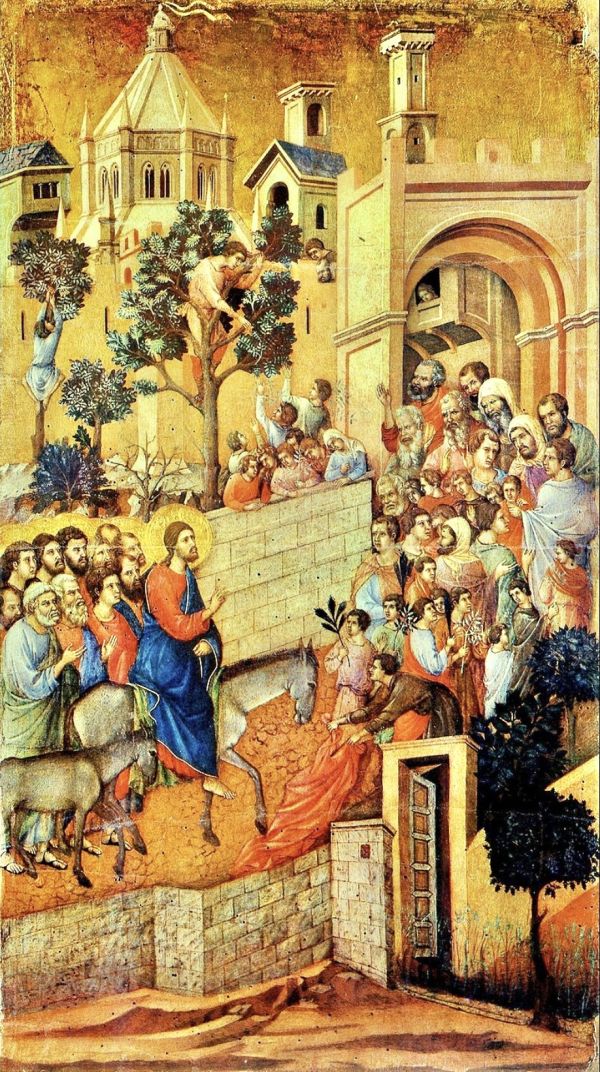(Mt 21:1-11; Mk 11:1-10; Lk 19:28-40; Jn 12:12-16)
In the Gospels the Lord doesn’t allow himself to be identified with the ‘eagle’ of Jn, although it’s He who comes from above - and ‘sees’ beyond the immediate.
He’s not a winged spiritual being [like the symbol of Mt] but fully incarnate, despite being the authentic Angel, that is, the Sent of the Father par excellence.
Jesus is not associated with the ‘lion’ [Mk], king of the forest and of beasts, although He’s the only successful and majestically royal man - the true and totally ‘present’ Person according to God.
Much less do we imagine him as an ‘ox’ [Lk], icon of the ancient traditionally sacrificial devotion.
On an evangelical basis, it’s not even possible to imagine the figure and proposal of the Master with the typical “bestiary” of homage and respect with which sovereigns and dignitaries, all the powerful and the elect even of the official religious caste, were idealised in the ancient East.
The Gospels do not recognise Jesus as a majestic ‘raptor’: they equate the stability, quality and action of his Spirit in the icon of the «dove».
Then with a figure that really makes the chickens laugh: the 'hen', who regrets the ruinous choices of her brood (Mt 23:37).
Instead of the power of the ‘lion’ [of Babylon or Judah tribe] here is the meekness of a Lamb that gives all of itself, including skin.
In place of ascetic renunciations, or of animals destined for the offertory necessary to appease the gods, a «man with a heart of flesh and not of a beast» with the ideal of Communion; life torn from the prehuman.
As if to say: it is a web of being (oneself, even small ones) and qualitative relationships, which supplants and sublimates the archaic sacrificial practices [sacrum-facere] with which in ancient times people sought contact and a reciprocal relationship with celestial Life.
Now it’s identified with human fullness.
Instead of the fiery arrogance of a steed that presses and becomes the protagonist of great enterprises, fully collaborating to make its leader illustrious, we see a symbol of tireless industriousness, dropped into everyone's common need: the ‘little donkey’!
That of the «donkey» is a thunderous proposal of a humble life, tailor-made for disciples still distracted, bamboozled by dreams of solemnity, prestige, worldly glory, and competitive lusts.
It means: within each one of us there is a «prophecy of unceasing service» that must be "untied".
It is as if there dwells within us an unexpressed spring being that can and wants to be «freed» from the many bonds of expectations of easy success, greatness, and consensus.
Previously indifferent or outraged hopes - for having gived credit to a resigned, humble Messiah.
Such is the level of Faith that it surpasses common religious sense.
That’s why the same people who cheer and acclaim acclaim, expecting triumphal celebration, sublime accolades and easy shortcuts - then queue up behind those who reject the Christ.
[Palm Sunday]












